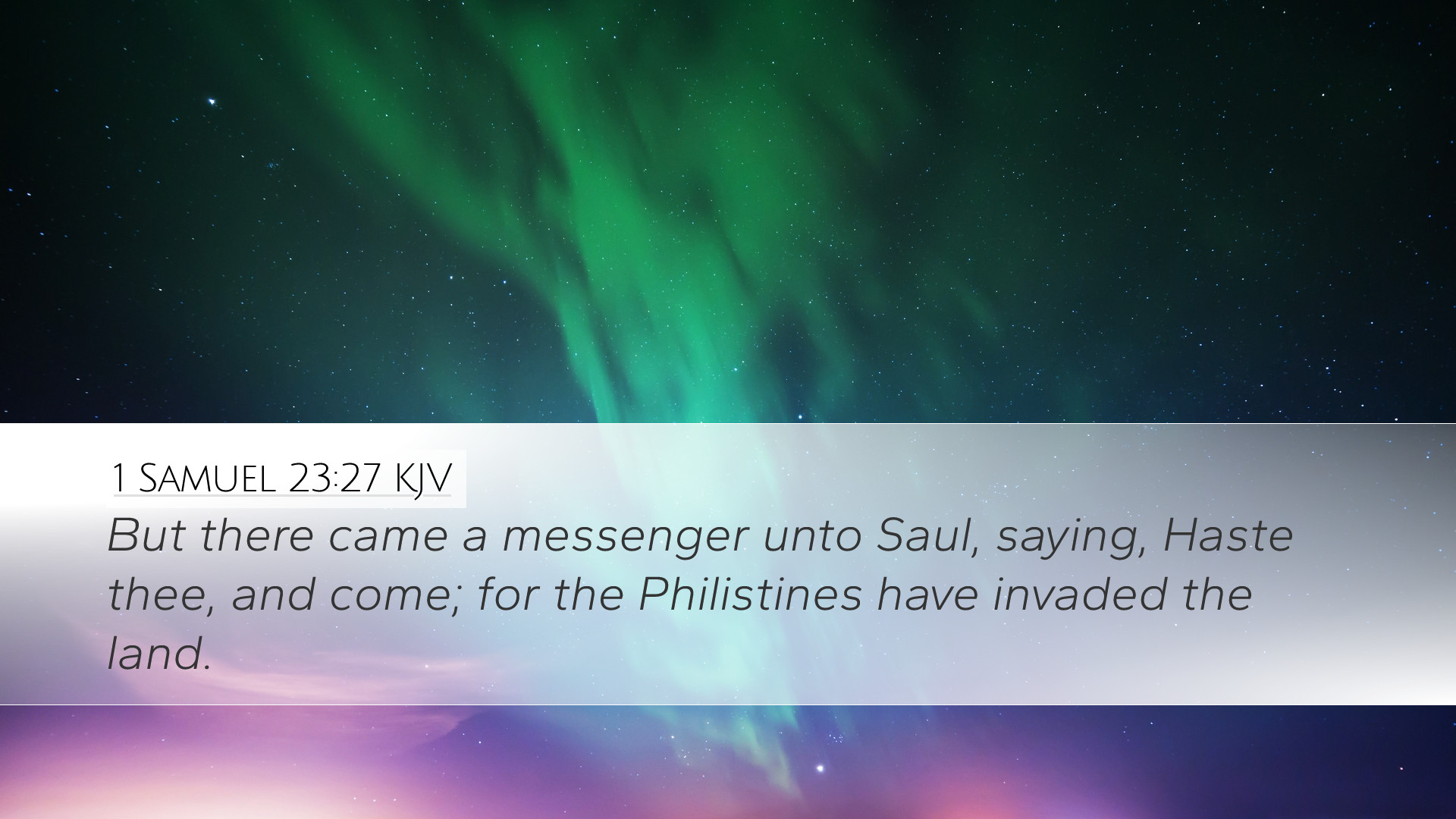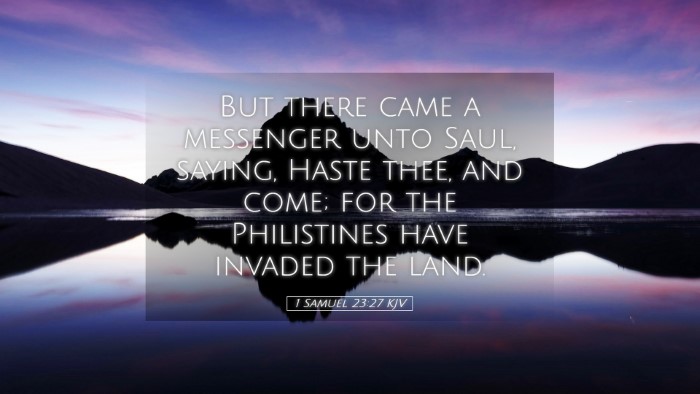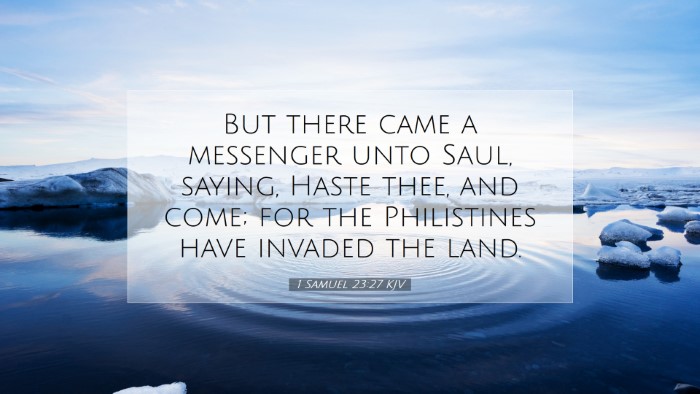Commentary on 1 Samuel 23:27
Verse: "But there came a messenger unto Saul, saying, Haste thee, and come; for the Philistines have invaded the land."
Contextual Overview
This passage occurs during the time when David is fleeing from King Saul, who is intent on hunting him down. David has taken refuge in the region of Keilah, where he has just rescued this city from the Philistines. The events leading up to this moment are complex, involving the loyalty of David's followers, the constant threat from Saul, and the ongoing conflict with the Philistines.
Insights from Public Domain Commentaries
Matthew Henry's Commentary
Matthew Henry emphasizes the providence of God in the unfolding events. He notes that the messenger's arrival is a pivotal moment for both Saul and David. This message interrupts Saul's pursuit, demonstrating how God can intervene at critical times. Henry points out that Saul’s urgency—“Haste thee, and come”—reflects the reality of his precarious position. The Philistines are attacking, which diverts his focus from David, illustrating the broader themes of divine protection and timing in the life of David.
Henry also draws attention to the significance of the Philistines as enemies of Israel, highlighting their perpetual threat. This reflects a theological motif regarding Israel's need for divine assistance in times of trouble. He suggests that the turmoil experienced by Israel serves as a reminder of the need for faithfulness to God and reliance on Him during crises.
Albert Barnes' Notes on the Bible
Barnes provides an exposition of the verse that places it within the framework of divine sovereignty and human responsibility. He interprets the messenger's report as a sign of God’s control over the events of the day. The sudden invasion by the Philistines becomes a means by which God's plan for David is executed, as it forces Saul to abandon his pursuit temporarily.
Furthermore, Barnes elaborates on the implications of Saul's behavior. The king, who is usually portrayed as paranoid and obsessive, is now faced with a genuine threat to his kingdom, revealing the irony of his fixation on David. This moment exemplifies how external pressures can shift focus and priorities, even for those in power. It serves as a cautionary tale about the dangers of losing sight of larger responsibilities in the midst of personal vendettas.
Adam Clarke's Commentary
Adam Clarke's insights emphasize the role of the messenger as a prophetic figure, one who delivers news that could significantly alter the course of events. Clarke points out that this messenger is likely seen by Saul as a lifeline, indicating that while he was preoccupied with hunting David, a more pressing issue has arisen. The Philistines' invasion serves a dual purpose, both as a divine intervention in David's life and as a demonstration of Saul’s failings as a leader.
Clarke also discusses the urgency conveyed in the messaging. He analyzes the phrase "Haste thee" and what it implies about the perceived threat of the Philistines. This urgency suggests that the invasion was significant enough to necessitate immediate action, further underscoring the volatile nature of Saul's administration. David, at this moment, is spared from certain doom because of the external demands placed on Saul, which Clarke sees as a clear instance of divine providence allowing David to remain in God’s favor while being pursued unjustly.
Theological Reflections
- Divine Providence: The events surrounding this verse illustrate the overarching theme of God's providence in the lives of His people, even amidst chaos and conflict.
- Leadership and Responsibility: Saul’s actions remind scholars and theologians of the costs of misguided leadership and the importance of prioritizing broader national issues over personal grievances.
- Faithfulness in Adversity: Both David’s plight and Saul’s distraction serve as invitations for believers today to remain faithful during times of personal and communal challenge.
- The Irony of Power: The verse reflects the irony of power dynamics—how a ruler preoccupied with a personal vendetta is derailed by a national crisis, serving as a reminder that no one is beyond the reach of God’s sovereignty.
Conclusion
In summary, 1 Samuel 23:27 encapsulates a significant turning point in the narrative of David's rise amidst Saul's decline. By integrating insights from Matthew Henry, Albert Barnes, and Adam Clarke, one gains a multidimensional understanding of this verse. It encourages readers to consider the profound implications of divine providence, the responsibilities of leadership, and the faithfulness required in adversity. For pastors, students, theologians, and Bible scholars alike, this passage serves as a rich source for contemplation and teaching regarding the interplay between God’s overarching plan and human actions.


